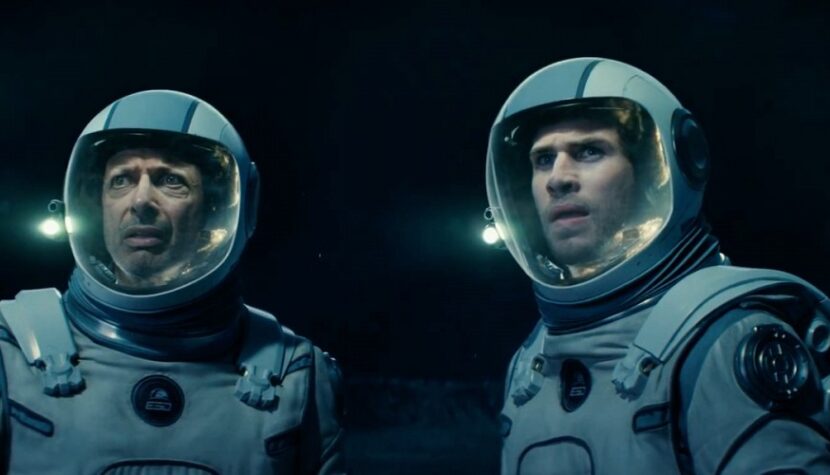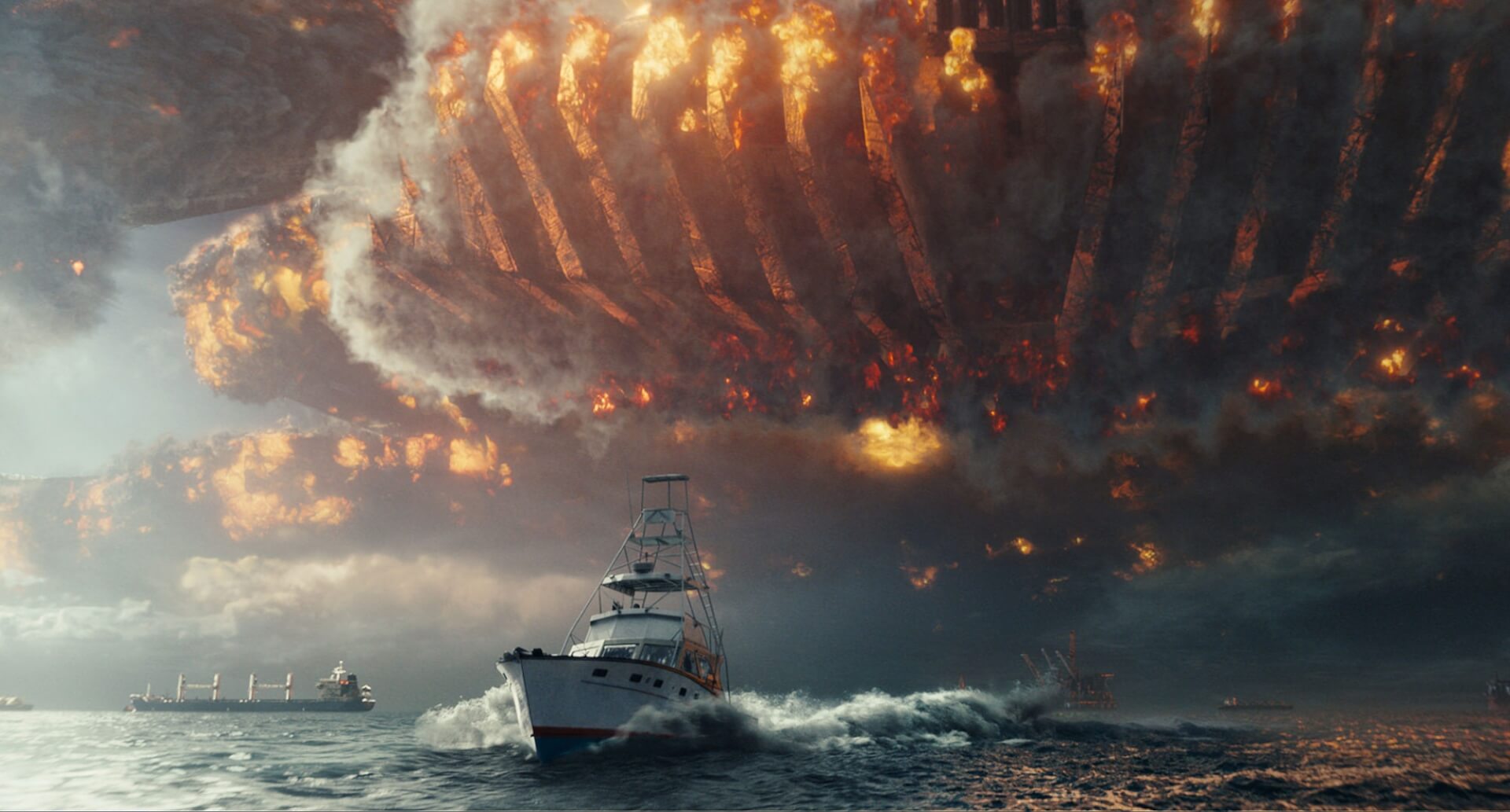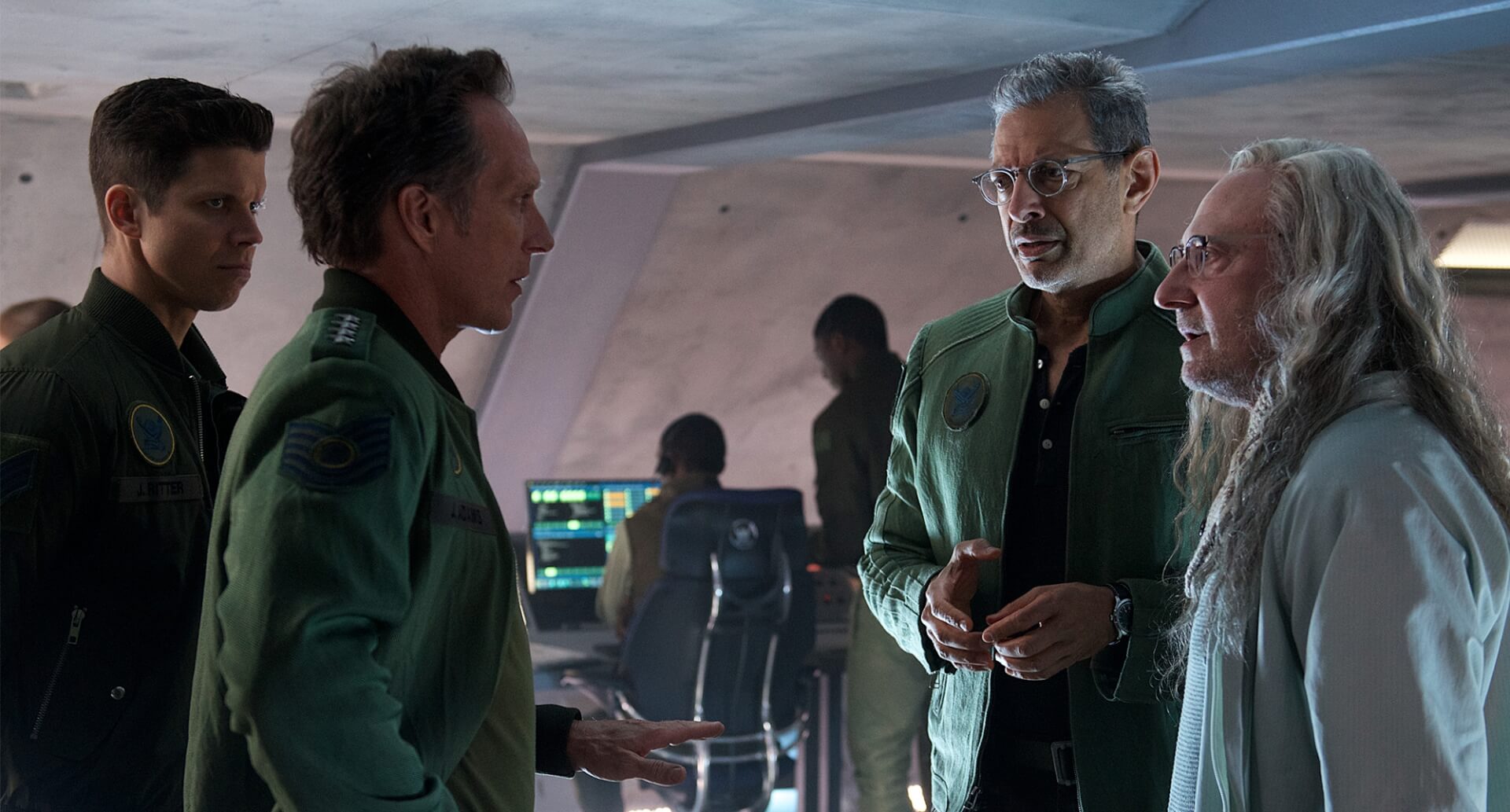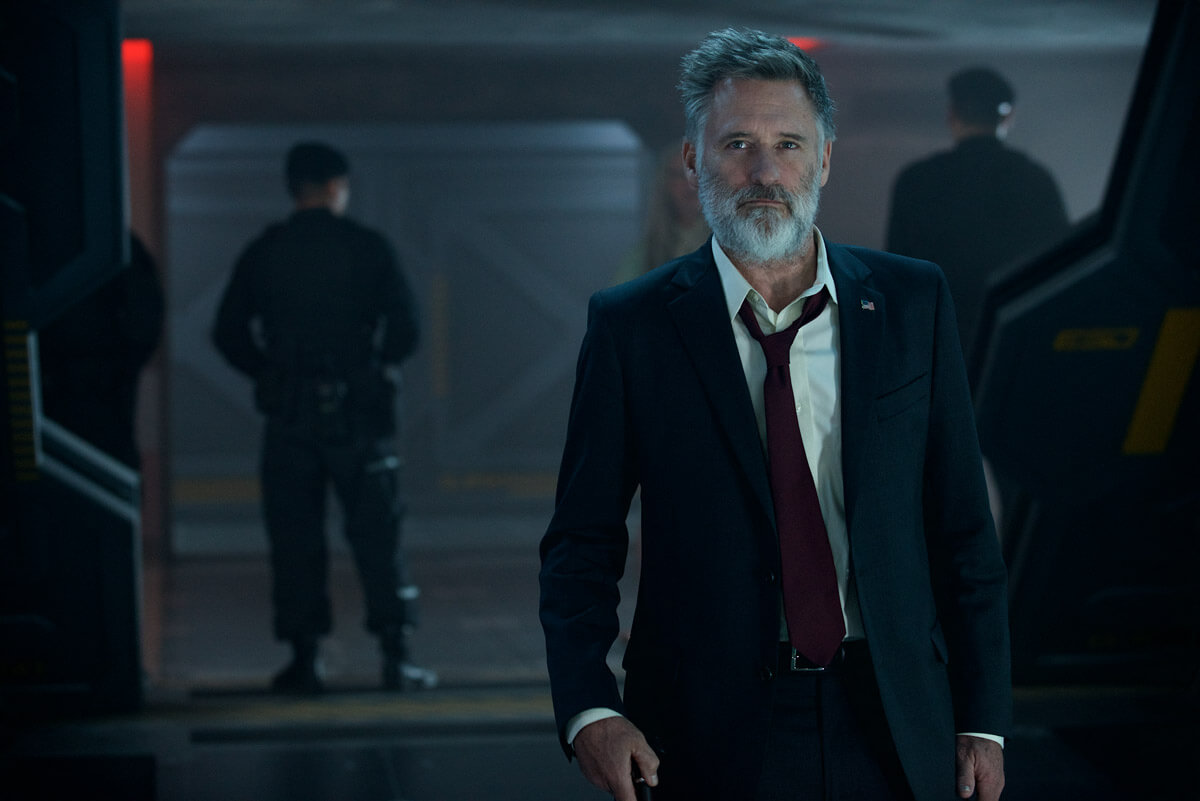INDEPENDENCE DAY: RESURGANCE. Science fiction most entertaining when absurdity reaches its peak

Independence Day: Resurgence is a good testament to how much entertainment cinema has changed over twenty years, yet remained the same. The sequel to the 1996 blockbuster often feels more like a remake than a sequel – the plot skeleton is very similar, many actors return to their roles from the original, while new ones replace those absent in the second film, specific scenes and ideas are repeated. However, the difference lies in the execution.
Two decades ago, witnessing a cosmic alien invasion was shocking and exciting; the destruction of the White House was probably the most recognizable scene in the film, not only because the seat of American presidents explodes and ceases to exist literally within a few seconds. It was also about building up to the spectacle of destruction, the characters’ proper understanding of the situation, the countdown to the great unknown (although for the audience, the twist of the plot was obvious), and ultimately the masterful execution of the screen Armageddon, where the computer aids practical effects. Roland Emmerich directs both parts, making it easier to compare the films and see the differences between the old and the new. Unfortunately, Resurgence practically loses at every step to its predecessor.

Twenty years after the victory over the cosmic invaders, the world has become a much safer place where there is no room for internal disputes but for joint actions to ensure that we never again become defenseless victims. Meanwhile, as often happens in sequels, the situation tends to repeat itself, and the original heroes discover that the alien invaders’ kin are planning another attack on Earth. This time in a ship capable of wiping out entire cities and oceans in one go. Once again, it is up to David Levinson (Jeff Goldblum) to determine whether humanity can defeat the enemy and prevent it from destroying our planet.
I highlight Levinson as the main character of the film, although there are several others. In the original, there were also appearances by Bill Pullman as the President of the United States and Will Smith as the brave pilot. The latter is missing in the sequel. The circumstances of his character Steven Hiller’s death are very vaguely explained, probably in the hope that the actor will change his mind for the third installment. Will there be a third? I don’t know, but I probably wouldn’t want his return. Not only because Resurgence is a disappointing film, but mainly because it passes the torch to a new generation. Hiller is replaced by his son (Jessie T. Usher), former President Whitmore’s daughter (Maika Monroe) takes over his role, and Levinson’s partner in the joint action becomes a certain Jake Morrison (Liam Hemsworth), and since one is childless and the other orphaned, they form an obvious duo. It’s a pity that all three young heroes are pilots (even Miss Whitmore) – it seems as if the planet’s future depends solely on the ability to control modern aircraft, and the young actors collectively wanted to replace the absent Smith.

Among the fresh blood, there is a lack of thinkers like the characters played by Goldblum or even Pullman, and probably that’s why all eyes of the audience turn back to them. One of the problems of the second part is precisely the uninteresting new characters. Therefore, it’s not surprising that Emmerich resorts to introducing even secondary characters from the first film – how else to explain the awakening from a twenty-year (!) coma of the haunted Dr. Brakish Okun (Brent Spiner) or the expanded subplot of Levinson’s father (Judd Hirsch)? And despite all the implausibility of scenes involving them, it’s still more enjoyable than the conflict between Hiller and Morrison or the romantic story of the latter with the young Miss Whitmore. Oh, this generational change didn’t turn out well.
But Independence Day: Resurgence is a missed opportunity for other reasons as well. The idea that people using alien technology improved the world and built an entire defense system against another attack is intriguing and provides ample opportunity for creating cinematic reality, but ultimately it boils down to presenting futuristic spacecraft, guns, and a base on the Moon. Emmerich and his team fail to see the potential that such a premise offers, both in terms of the screenplay and visually. They avoid questions about how Earth is safer, how ordinary people view all these changes, or whether there has been a more expansive exploration of space, knowing that we are not alone.
The creators promise to show us a new, magnificent world, but we receive nothing but a facade built on images akin to a parade. Most likely, it’s just lip service.

However, what partially saves Emmerich’s film is the shamelessness in using cheap tricks and clichés of cinema that are not afraid of their own naivety. As the end approaches, the fun increasingly infects the viewers. Perhaps the reason for this is that the German director feels more comfortable exploiting familiar motifs to the point of absurdity – hence he never misses a chance to include in his film a scene of trying to save a dog from cosmic danger or Morrison’s colleague’s romantic advances towards the doe-eyed Chinese pilot.
The film is most entertaining precisely in those moments when absurdity reaches its peak, and improbable coincidences become reality.
The finale genuinely works, partly because it offers something that wasn’t present in the first part, but also because of its lack of pretense and exaggeration. When the alien focuses all its effort on catching a bus full of children instead of fighting the attacking planes, you know you’re not watching anything smart. But at the same time, it’s hard not to have fun during such a scene.
I can’t completely write off this, let’s admit it, utterly unnecessary sequel. I still remember the original as an example of an entertainment film that, although not entirely successful, aimed to amaze, to make the audience say, “I’ve never seen anything like this before.” The sequel quickly fades from memory; it’s too similar to today’s cinema of destruction, but it has its moments. The ending opens the door to another installment, offering new cognitive possibilities for the characters, although I fear it will again end in empty promises and wasted opportunities.

